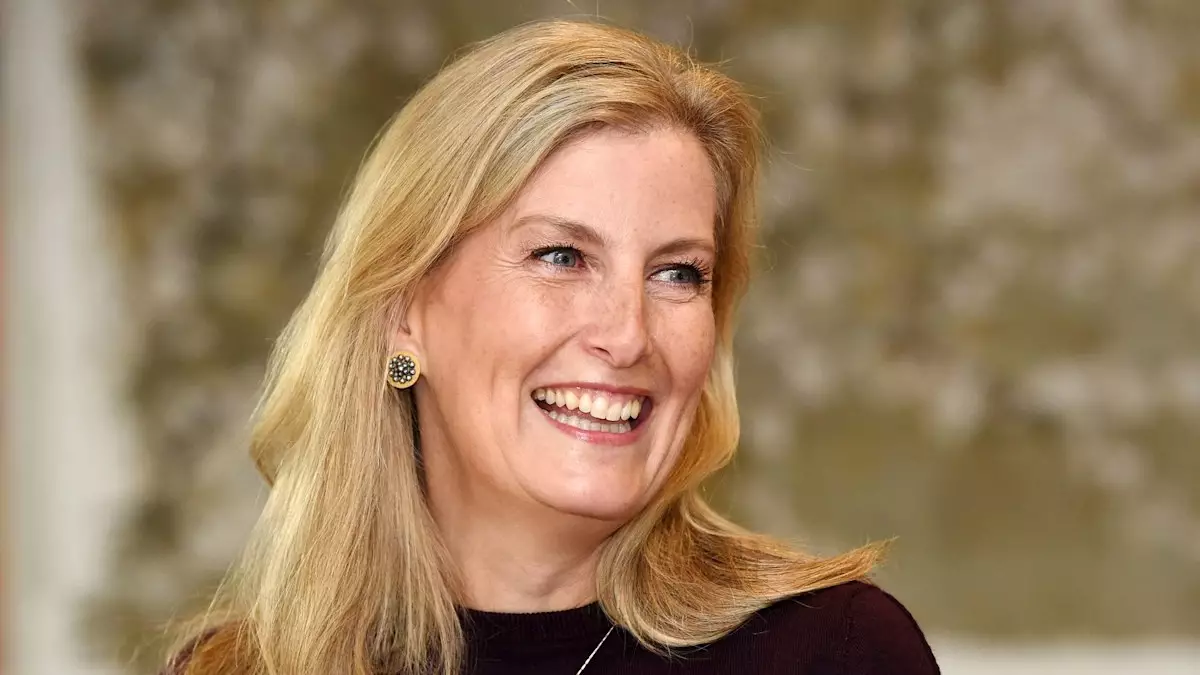In a recent episode of The One Show, viewers were treated to an uplifting moment that showcased the importance of compassion and royal presence in charitable endeavors. The Duchess of Edinburgh, Sophie, made a surprise visit to 21-year-old Emily, who has cerebral palsy, during her ambitious charity walk known as The Long Walk in Windsor. This moment was part of the BBC Children in Need’s initiative, The Challenge Squad, which aims to raise awareness and support for young individuals facing challenges related to disabilities. The segment was presented by host Roman Kemp, who energetically set the scene, revealing that the Royal Duchess had come to bolster Emily’s spirits as she navigated the physically demanding trek.
The Duchess’s interaction with Emily was heartwarming. She commended the young lady’s perseverance, stating, “You’re doing amazingly well.” Such genuine encouragement not only elevated Emily’s spirits but also highlighted the importance of public figures in raising awareness about disability and empowerment. Emily’s own words reflected a sense of achievement, stating, “I just did a whole lot of walking which was tough, but I’m proud of myself for getting there.” This sentiment resonates deeply, as it emphasizes the triumph of spirit over physical limitations—a key message in the discourse surrounding disability.
Their dialogue extended beyond mere pleasantries, delving into topics of societal perception regarding disability. Emily articulated the struggles she has faced as someone with a disability striving to integrate into a society that often overlooks or underrepresents challenges faced by individuals like her. The Duchess prompted this reflection by asking her if she believed there had been changes in perception during her lifetime. Emily’s insightful response resonated, drawing attention to the need for broader societal acceptance and inclusion.
Such candid exchanges are critical, as they not only acknowledge the challenges that individuals with disabilities face but also empower others who may be in similar situations. The Duchess’s presence illuminated the way forward; inspiring audiences to engage more deeply with issues of disability and to foster an environment of inclusion. The public’s reaction to this interaction revealed a collective support for both Emily and the Duchess, with many expressing admiration on social media for their genuine connection. Comments like “Well done, Emily!!! And super nice to see The Duchess of Edinburgh with her today,” showcased a longing for more of such positive narrative around disability.
Emily’s journey is emblematic of the vital role that organizations like CPotential play in the lives of young people with disabilities. Founded to support individuals like Emily, who was born prematurely with cerebral palsy, CPotential provides resources geared towards enhancing mobility and physical strength. This partnership emphasizes that community support is crucial in facilitating personal growth among young people facing health challenges. Furthermore, it illustrates the importance of programs such as BBC Children in Need, which not only fund these initiatives but also elevate the narratives of resilience and triumph in the face of adversity.
By spotlighting Emily’s story, the Duchess of Edinburgh contributes significantly to raising awareness for such initiatives, reinforcing her role as a royal who is not only engaged in traditional duties but also passionately advocates for those who often remain unheard. This instance further marks a notable shift in royal engagement, where the emphasis extends beyond ceremonial appearances to meaningful interactions that foster change.
Duchess Sophie’s engagement with Emily coincides with a significant evolution in the monarchy’s approach to social issues, illustrated by her recent role in leading the Armistice Service, a first for her, symbolizing both a personal milestone and a continued commitment to serve society. Each royal interaction serves as a reminder of the responsibilities that come with public platforms, particularly in challenging societal norms about disability.
The Duchess of Edinburgh’s appearance on The One Show resonated not only as a moment of royal presence but as a beacon of hope for those navigating life’s challenges. Her heartfelt encouragement for Emily symbolizes a broader need for recognition and support of individuals with disabilities. As we continue to share narratives of strength and resilience, it becomes increasingly clear that compassion—augmented by the influence of public figures—can serve as a powerful catalyst for positive change in the culture of acceptance and understanding toward those with disabilities.

